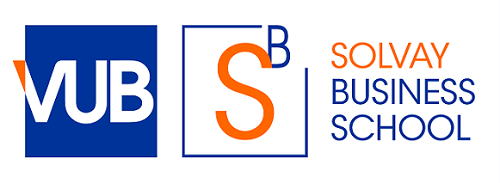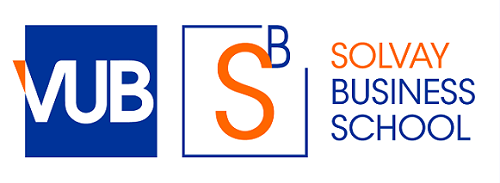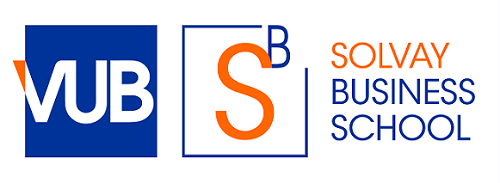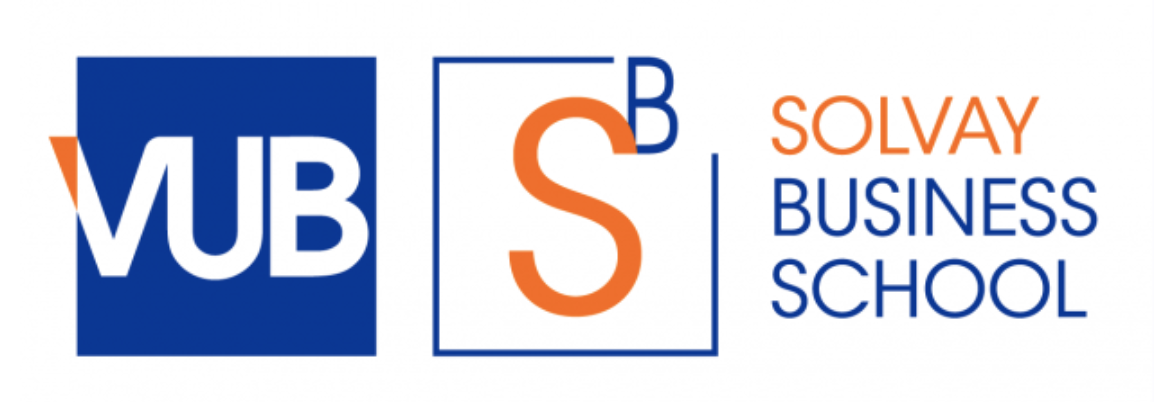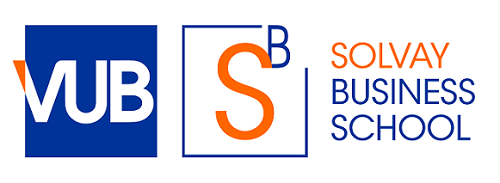Bachelor in Business Economics
AT VUB SOLVAY BUSINESS SCHOOL
WHY CHOOSE BUSINESS ECONOMICS?
Do you wonder why a brand-new car you purchased is worth less the very moment you drive it off the seller’s lot? Or why one firm seems to market its products more successfully than another firm? Are you intrigued by why some countries have been performing well even in times of crisis? Do you want to know how to best motivate your employees? Then you should consider studying Business Economics.
A UNIQUE COMBINATION
This English-taught academic bachelor programme combines business and economics: it provides solid foundations in micro- and macroeconomics, a strong background in mathematics and statistics, and courses in most functional fields of business (management & organizations; marketing; finance & accounting). This gives students a wider range of options when they graduate, both for graduate programmes and on the job market.
If you opt to study the "Business and Technology" specialization, you add a third dimension to your study curriculum: the technological aspect. You learn the basics of electronics, chemistry and bioscience, IT modeling and you zoom in on technological entrepreneurship.
A YOUNG PROGRAMME
This programme was launched in the academic year of 2018-2019. Annually, the programme is growing and our very first bachelors in Business Economics have graduated in the academic year of 2020-2021.
We welcomed over 110 new bachelor students in our first year, making the launch a great success! Currently, about 400 students are enrolled in this programme.
THE PROGRAMME OVERVIEW
The bachelor programme exists of three modules: BA1, BA2 and BA3. Ideally you finalize all three modules in three academic years. In the 3rd module, you will have to select your specialization: International Business or Business and Technology. This choice has a vital impact on your master options (you can find more information on this further down this page).
LEARNING OUTCOMES
Learning outcomes describe the intended knowledge and understanding, skills and attitudes that you must master after completing your studies. Do you want to know more about the specific learning outcomes of this programme? Click here for more information.
OPTIONS MASTER PROGRAMME
After having completed this bachelor programme, you have the option to continue in one of the following master programmes (based on your 3rd bachelor specialization):
Master in International Business
Completed the bachelor specialization in International Business?
Discover this programme
Master in Business & Technology
Completed the bachelor specialization in Business & Technology?
Discover this programme
Contact us
businesseconomics@vub.be
Entry requirements & Application procedure
We have listed both the academic and the language requirements. Further below you will find more information regarding the application procedure.
ACADEMIC REQUIREMENTS
In order for you to apply for this Bachelor programme, you need to have secondary school credentials that grant you access to a Bachelor degree in your home country.
Some international high school degrees are deemed equivalent to a Belgian degree of secondary education and grant direct access (provided you also have valid proof of language proficiency) to our Bachelor programmes.
List of equivalent secondary school certificates
If you have a high school degree that is not equivalent to a Belgian degree of secondary education, you will have to meet our language requirements (see below) and send us your high school diploma and transcripts as well as a letter of motivation. The admissions committee then decides whether you are eligible to join the programme.
LANGUAGE REQUIREMENTS
We accept the following proof of English language proficiency:
1. an upper secondary school diploma from the Belgian educational system;
2. a certificate from the institution where you finished secondary or higher education, stating that English was the language of instruction;
3. a certificate of one of the following language tests corresponding to the Common European Framework of Reference with minimum level B2:
- TOEFL (only the internet-based test is accepted) with minimum level: 79
- IELTS academic module, with minimum level: 6.5
- Cambridge English minimum grade scale score of 170
- ITACE with minimum level B2
Due to the COVID-19 pandemic, we are aware that students may face difficulties to take a test in person. Please note that we also accept the TOEFL IBT Special Home Edition and the IELTS Indicator. These are variants of the classic TOEFL and IELTS tests that you may take at home.
This proof can be provided by presenting results of a language test or documents issued by your home institution. Please note that language test results cannot be older than 5 years at the moment of application.
It is mandatory that the language requirements are met before you are accepted at the VUB. We do not issue letters of acceptance without it.
MATH SKILLS
Although a GMAT is not required to be admitted, we do expect our students to have solid prior knowledge of mathematics. To find out if your knowledge is sufficient, we have developed a short test. You should be able to finish these exercises without too much trouble. Struggling with one of the topics? Then be sure to take the time to brush up on your mathematics skills.
Application procedure
The only way to find out if you are eligible join this programme, is by submitting your online application file before the deadline.
Start application season 2223
December 2021Deadline non-EEA students (visa required)
1 April 2022Deadline EEA students (and holders of a valid permit)
1 September 2022Start academic year 2022-2023
19 September 2022THE PROCEDURE
The application procedure takes time since different departments are involved in the screening process. Therefore, we advise all of our candidates to apply well before the deadline and to submit a complete file (including all required uploads) as soon as possible.
- Start the application procedure, submit your file and pay the application fee (€50)
- Screening process in three steps: central admissions office checks completeness of your file > faculty program board check the academic requirements > central admissions office checks the language requirements
- Outcome of screening: if accepted, you will receive a conditional letter of acceptance (which you can use to request a student visa)
- Enroll at VUB university campus before October 8th
REQUIRED DOCUMENTS
- ID card / Passport copy;
- Passport photo (to be used for your student card);
- High school diploma or proof that you will graduate at the end of this school year;
- Proof of English proficiency;
- High school results (not mandatory if you have direct access);
- Letter of motivation (not mandatory if you have direct access)
Even if you do not possess all of the required documents, you can already submit your application and send us your late documents as soon as they are available to you.
STUDY AT SOLVAY BUSINESS SCHOOL
The Faculty of Social Sciences & Solvay Business School has its roots in the Business Engineering programme founded by Ernest Solvay in 1903. This started a long tradition of integrating business education with technology, which continues to this day in all of its programmes.
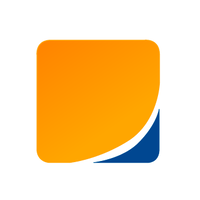
SOLVAY SCHOOLS ALUMNI NETWORK
Solvay Schools Alumni is the association that gathers all graduates of the VUB Solvay Business School and the ULB Solvay Brussels School of Economics & Management.
Representing a network of 20,000 alumni in more than 65 countries, our alumni are present in all areas of the workforce. With about 50 activities and conferences every year, the organisation offers its members lifelong learning, career services, support and networking opportunities.
Thanks to an extensive online database and its annual yearbook, Solvay Schools Alumni gives its members the chance to keep in touch and meet up at professional and social meetings.
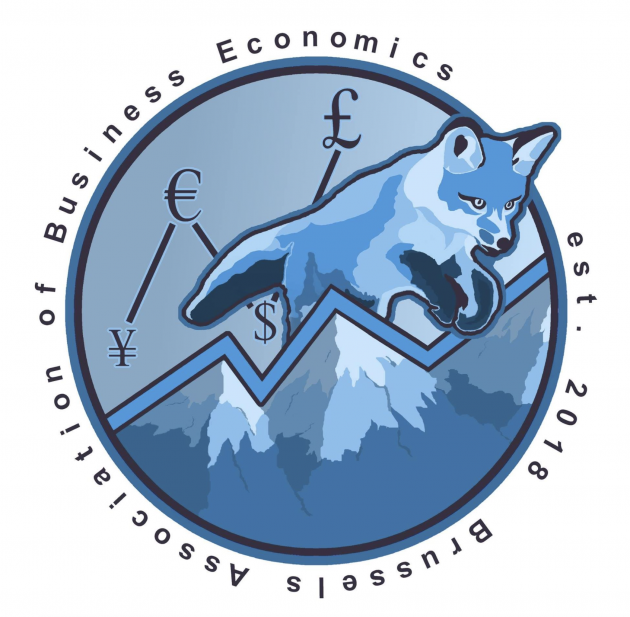
BRUSSELS ASSOCIATION OF BUSINESS ECONOMICS
The Brussels Association of Business Economics is a student organization founded in 2018 at the Solvay Business School (VUB). This association was founded by BSc. Business Economics students for its contemporaries in the Brussels area.
B.A.B.E. aspires to be the primary platform for socializing and interaction especially between the international community of Business Economics students, its alumni, and students from other disciplines. The goal is to serve the Business Economics student body in a multifaceted approach towards complementing and building their daily lives and interactions.
They host a variety of events, like workshops with external partners relevant to our educational program, quizzes and scavenger hunts, collaborations with volunteering networks and non-profit organizations, as well as guest lectures where they invite professionals prominent in their field to speak to its members. This broad array of events consolidates the four pillars: Education, Socialization, Entrepreneurship, and Philanthropy. Without one, the organization would not be complete.
STUDY IN BRUSSELS
Vrije Universiteit Brussel (VUB) is a dynamic and modern university with almost two centuries of history. VUB has 15.000 students, 21% of which are international students from more than 120 different countries.
Being a student at VUB means learning in an international and open atmosphere of tolerance and diversity that will help you to grow into an independent and critical-thinking individual.
Vrije Universiteit Brussel (VUB) is known for its highly skilled academics and professionals with an excellent command of various languages and a good understanding of multiple cultures are needed in national and international public institutions and in multinational companies. As the capital of Europe, Brussels is the perfect setting to prepare yourself for a job in the field(s) of business economics.
This bachelor is taught on a green campus where all facilities are close at hand: classrooms, student restaurant, library, sports facilities (swimming pool, gym, three sports courts, badminton facilities).
A quick campus tour
All courses will be organised on the Brussels Humanities, Science and Engineering Campus in Brussels
Frequently asked questions
-*-*-
The Bachelor of Business Economics is interdisciplinary: there are stronger ties between the economics courses and the functional fields of business. The economics courses are not just filler courses but are an essential component of the program.
There is stronger emphasis on analytical problem-solving skills (e.g. using mathematical tools) and as a result, the bachelor gives access to a wider range of master programmes (e.g. to master programmes in economics and finance).
Students are exposed to the scientific literature of the field, and are actively prepared to write an academic bachelor paper.
As a result, the Bachelor of Business Economics gives access to a wider range of graduate programmes, including master programmes in economics and math-intensive master's programs in finance. Alumni of the programme will be expected to have better analytical skills than alumni from a BBA program.
- MSc in International Business (two years (120 ECTS-credits), at the VUB, taught in English). Graduates from the Bachelor of Business Economics have direct access. The Master in International Business is equivalent to the Master Toegepaste Economische Wetenschappen.
- MSc in Business Engineering: Business and Technology (two years, 120 ECTS-credits), at the VUB, taught in English. Graduates from the Bachelor of Business Economics who took the orientation in "Business & Technology" have direct access to the MSc in Business Engineering: Business and Technology. The MSc in Business Engineering: Business and Technology is equivalent to the Master Handelsingenieur.
- Master Toegepaste Economische Wetenschappen (one year, 60 ECTS-credits), taught in Dutch at the VUB as well as at other Flemish universities. Graduates from the Bachelor of Business Economics who are proficient in Dutch (!) have direct access because the Bachelor of Business Economics is equivalent to Bachelor TEW.
- Master in Handelsingenieur (two year, 120 ECTS-credits), taught in Dutch at the VUB and at other Flemish universities. Graduates from the orientation "Business & Technology" who are proficient in Dutch (!) have direct access to this master.
- Master's programmes in economics and business offered outside VUB, depending on their admission criteria.
No, there is no internship course included in this programme. If you continue in one of the VUB master programmes (cf previous answer), you have the option to do a credited internship.
Yes, students can opt to take part in an exchange programme in their 3rd module. Destinations can be both within Europe (we have Erasmus+ agreements with 14 countries in Europe) as well as outside of Europe. The university has international exchange agreements with universities in Brazil, Mexico, South Africa, Vietnam, Japan, Morocco, China, Canada, USA, etc. You find an overview of the selection procedure and destinations within Europe on this website and the worldwide options on this website.
All Flemish universities in Belgium, including the VUB, are subsidized by the Flemish government, which results in relatively low tuition fees for students from the European Economic Area (EEA). The tuition for one year varies between about € 900 (EEA students) and € 4000 (non-EEA students).
There is no automatic transfer process. You apply as any other student has to (or in case you have direct access: you enroll) and then you have the option to submit a personal exemption request. This consist of a completed template (available on this website), your study records (official documents, stamped & signed by the institution) and the official course content sheets providing all available and official information on each of the courses you say to have completed in the past.
Secondary school programs that develop problem-solving and analytical skills (and that typically cover natural sciences, mathematics at some depth) are an excellent preparation for the Bachelor of Business Economics. The economics and business courses in this programme require no prior knowledge of economics and business.
Since we welcome students from all over the world, this programme has a vey international student body consisting of almost 88 different nationalities. Currently we have about 42% Belgian students, 25% European students and 33% non-European students.
We recommend four hours per week, but students who are good at math can manage if they only took three hours of math per week in secondary school. There is a self-test for future students available (download this test here). If you speak Dutch, we recommend taking the math refresher course in September (more information). We currently do not offer a math refresher course in English.
There are no language courses in the programme. As most of the students in the program don’t have English as their native language, our students are typically at least bilingual when they graduate. You can take language courses on campus, with CVO Semper (a school that offers adult education both during the day and in evening classes) or with Academisch Centrum voor Taalonderwijs (ACTO), but these classes do not count for academic credit in the programme (you will receive a language certificate when you complete a course, however).
The Bachelor in Business Economics is offered by Solvay Business School, part of the Faculty of Social Sciences and Solvay Business School of the Vrije Universiteit Brussel (VUB). Our sister university, Université Libre de Bruxelles (ULB), similarly has a business school that is called Solvay Brussels School — Economics & Management.
Vrije Universiteit Brussel and Université Libre de Bruxelles co-operate in many ways but are different universities. However, Alumni of Solvay Business School (VUB) and of Solvay Brussels School — Economics & Management (ULB) can become members of the same alumni organization, Solvay Schools Alumni (https://www.solvayschoolsalumni.net), giving access to a large international network.
Contact us
businesseconomics@vub.beYOUR BACHELOR IS ONLY THE BEGINNING
After having completed this bachelor programme, you have the option to continue in one of the following master programmes at Vrije Universiteit Brussel (based on your 3rd bachelor specialization):
JOB OPPORTUNITIES
A degree in Business Economics is versatile. Graduates can get jobs in a broad range of sectors like banking, insurance, audit or consulting, but also in public administration. They work in research departments or other staff functions in firms and organizations, and in operational functions as well. Some graduates become sales managers or human resources managers, others work in marketing. In short, the degree offers a broad range of opportunities.
Careercenter
CC HELPS YOU TO MAKE YOUR FIRST STEP IN THE JOB MARKET WITH WORKSHOPS, NETWORKING EVENTS, JOB FAIRS, TIPS ‘N TRICKS ...
First step in the market
